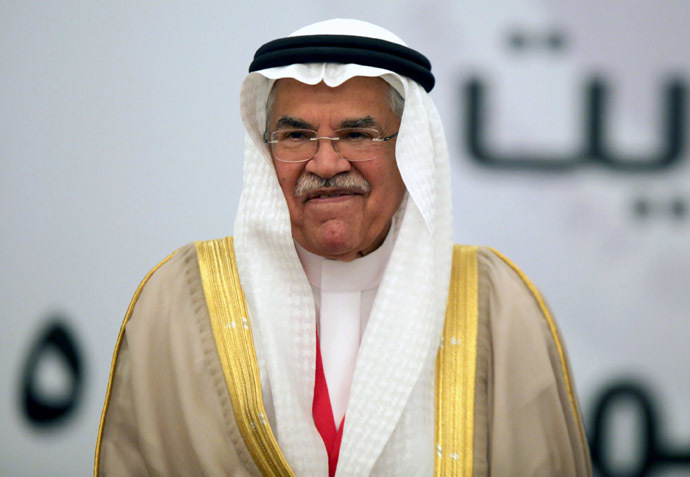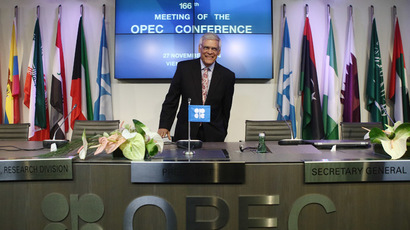Saudi Arabia braces for $39bn deficit, to cut wages due to low oil prices

The number one crude oil exporter, Saudi Arabia, has projected a $39 billion deficit in 2015. The impact of lower oil prices, along with the decision not to cut production, is putting pressure on the country’s finances.
READ MORE: Saudi Arabia confident oil prices will rise, won’t cut output
The figure was part of the endorsed 2015 budget, which was made public in a statement read out on state-run television on Thursday.
The estimated trade deficit will be Saudi Arabia’s largest on record.
The Finance Ministry said the government will try to save some money by cutting salaries, wages, and allowances that represent around “50 percent of total budgeted expenditures.” But the move could anger Saudi youth, who are already struggling to cover the costs of living in the country.
According to the International Monetary Fund (IMF), about two-thirds of the population works for the government.
The 2015 budget includes 860 billion riyals (US$229.3 billion) in spending and 715 billion riyals ($190.7 billion) in revenue. Saudi Arabia promised to cover the difference by digging into its reserves.
Saudi Arabia’s 2015 budget is probably assuming an oil price of
$80 a barrel so it will be seen as a sign of confidence in the
market, former economic adviser to the country’s government, John
Sfakianakis, told Bloomberg after the budget was announced on
Thursday. The assumption is down from $103 a barrel for this
year, Sfakianakis added.
“Everyone was expecting to see a budget built on a price
around $60 but that would have sent a negative message to the oil
market,” Sfakianakis said. “With a fiscal break even
price of $80 a barrel, the government is sending a message to the
market that we are expecting to see a rebound in oil
prices.”
Oil accounted for 89 percent of Saudi Arabia's revenue last year.
At the latest OPEC meeting in Vienna, Austria, the Gulf country opted not to cut the production ceiling of 30 million barrels per day, despite oil prices plunging nearly 50 percent since summer.
READ MORE: Oil slumps into tailspin as OPEC leaves output unchanged

Saudi Arabia has also made clear that it is unwilling to cut down production, even if oil prices continue to fall further. Last week, the country’s oil minister, Ali Al-Naimi, said that output would not be reduced, even if prices fall to $20 a barrel.
The decision has been interpreted by some experts as trying to weed out new players from North America, who can competitively produce shale oil only at higher crude prices. However, lower oil prices also directly hurt the economies of countries like Russia, Iran, and Venezuela.
READ MORE: $20 oil wouldn’t force production cut – Saudi oil minister
Some economists fear that the deficit in 2015 might be even larger than projected, since Saudi Arabians have underestimated the figure in the past.
“I believe we are headed for a difficult year in 2015. I think the actual deficit will be around 200 billion riyals [$53 billion] because actual revenues are expected to be lower than estimates,” Saudi economist Abdulwahab Abu-Dahesh told AFP. “Spending in the budget is not in line with the sharp decline in oil prices,” he said.
According to the country’s Finance Ministry, the 2014 fiscal year budget is set to post a deficit of 54 billion riyals ($14.4 billion) – the first budget shortfall since 2009.














